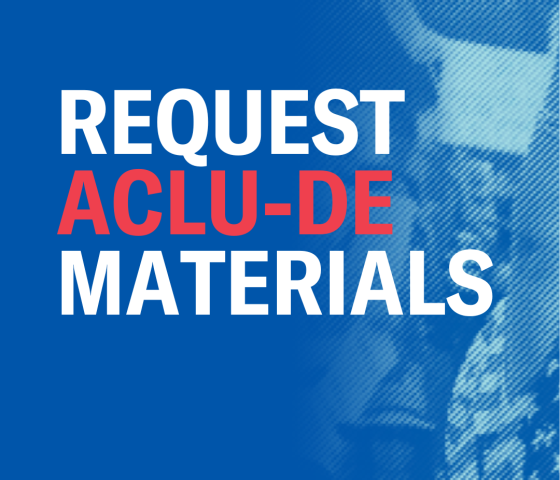Dover (April 7, 2016)— Yesterday, the American Civil Liberties Union of Delaware, the League of Women Voters of Delaware, and the Delaware Coalition for Open Government called for passage of SB 222, bipartisan legislation that will protect private property rights by eliminating Delaware’s system of civil asset forfeiture and replacing it with criminal forfeiture.
“In America, you shouldn’t be able to take people’s stuff without proving they did something wrong,” chief co-sponsor Sen. Colin Bonini (R-Dover,) said Wednesday, according to an article from the Associated Press. “This is not anti-law enforcement … this is pro-freedom,” said Bonini, adding that he has spoken with Delaware State Police about the measure.
Currently, Delaware law allows the police to seize assets if they suspect that an individual’s cash, car, home or other assets are associated with drug related criminal activity. A conviction, or even an arrest, are not required for the seized assets to be held. In order to recover the assets, the property owner must prove that they were legitimately gained and not connected to a crime. SB 222 would require a criminal conviction before the state could retain an individual’s assets.
Delaware’s system is especially troubling because it is also highly secretive. Unlike most states, little is publicly known about what is seized here or how the assets are spent. The agency tasked with distributing the money, the Special Law Enforcement Assistance Fund, or SLEAF, has been declared exempt from the Freedom of Information Act. This particular legislation, if passed, would eliminate SLEAF. The bill requires, in most cases, that a person is convicted of a crime subject to forfeiture before his or her property is confiscated.
Kathleen MacRae, Executive Director, ACLU of Delaware, Inc., says “Trust in the American system of justice is based on the principle that someone is innocent until proven guilty. Civil forfeiture turns that concept on its head. The government should not be able to seize and keep assets without a criminal conviction. It flies in the face of two deeply held American values—private property rights and due process rights."
Stay tuned for updates as the bill is officially introduced.
SIGN THE PETITION
Protect Delaware's Immigrant Communities

